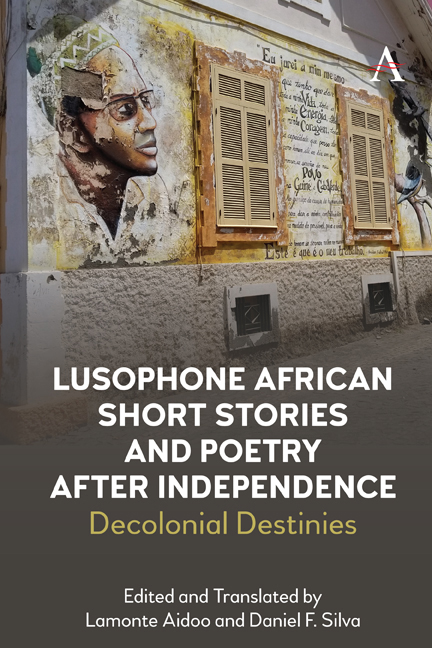Chapter 20 - Nelson Saúte
Published online by Cambridge University Press: 23 February 2022
Summary
Introduction
Born in Maputo (then Lourenço Marques) in 1967, Nelson Saúte has become an important name in the postindependence literature of Mozambique. Throughout his professional life, he also played a crucial role in the dissemination of Mozambican literature, in addition to holding leadership positions in noted journalism and media outlets. After completing his secondary education in Mozambique, he earned his bachelor's degree in communication sciences from New University of Lisboa. After completing his degree in Lisbon, he continued to reside in the Portuguese capital, going on to work as an editor at the Jornal de Letras (Journal of Letters) and the daily Público (Public). He also earned a master's degree in sociology from the University of São Paulo.
His first literary book publications were anthologies of Mozambican poetry, also featuring his own poems: Antologia da nova poesia moçambicana: 1975– 1988 (Anthology of New Mozambican Poetry: 1975–1988, 1989) and A Ilha de Moçambique pela voz dos poetas (Mozambique Island through the Voice of Poets, 1992). From early on in his literary career, Saúte has been concerned with not only contributing to Mozambican literature, but also with curating it and providing platforms for other Mozambican writers. Following these publications, he released his first collection of poetry, A pátria dividida (The Divided Homeland, 1993), his first collection of short stories, O apóstolo da desgraça (The Apostle of Disaster, 1996)—from which the story below is taken—and his first novel, Os narradores da sobrevivência (The Narrators of Survival, 2000). He followed these publications with a third anthology, the acclaimed As mãos dos pretos (The Hands of Black People, 2001)—an ambitious collection of short stories from over 30 Mozambican writers across colonial and postcolonial periods.
In 2003, he published another collection of his poetry, Nunca mais é sábado (Longing for Saturday) followed by a graphic children's novel, O homem que não podia olhar para trás (The Man Who Could Not Look Back, 2006). His latest work is a collection of his short stories, Rio dos bons sinais (River of Good Signs), published in 2008. Since then, he has continued to work on publishing Mozambican writers, working as lead editor of the Mozambican press, Editora Marimbique, and as a consultant for Kapulana, a Brazilian press that has published works by authors from the Lusophone world and other African nations including Nigeria and Kenya.
- Type
- Chapter
- Information
- Lusophone African Short Stories and Poetry after IndependenceDecolonial Destinies, pp. 213 - 218Publisher: Anthem PressPrint publication year: 2021

